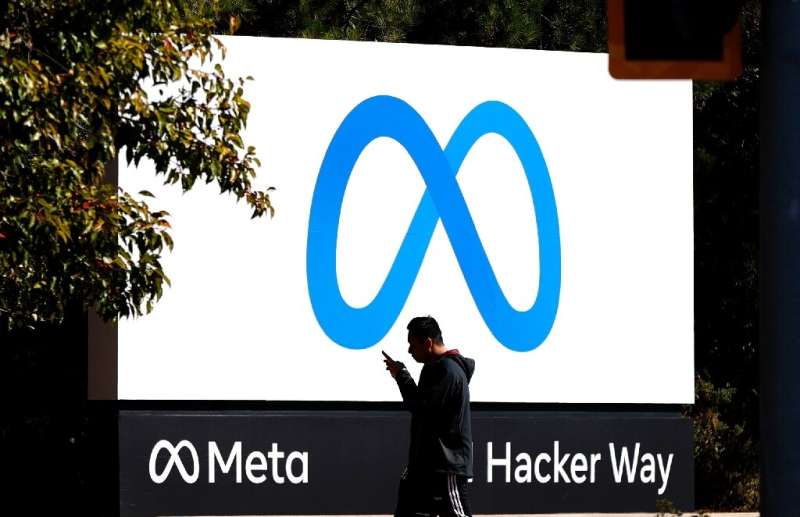[ad_1]

Facebook-owned Meta and Alphabet-owned Google are working on ways to target online ads while protecting user privacy.
Facebook and Google are under increasing pressure to strike a better balance between privacy and ad targeting, with their fortunes at stake as users revolt, regulators loom, and Apple seizes a moment to polish its image.
At issue is how much Internet companies should know about people’s online lives, a stream of data that is key to the many billions that Big Tech makes from advertising each year.
Firms are constantly facing tougher rules after the EU passed a sweeping data privacy law in 2018 that, among other rules, requires firms to ask users for express consent before placing cookies on their computers.
But the new pressure is mounting with the development of landmark European legislation that could create unprecedented oversight of big tech, with Silicon Valley giants the target of a tangle of official U.S. investigations and lawsuits.
“They’re really between a rock and a hard place. Their whole business model is at risk,” analyst Rob Enderle said of the threat to Meta and Alphabet, the parent companies of Facebook and Google, respectively.
One battleground is the use of so-called “third-party cookies,” pieces of software that track users’ online behavior and have been portrayed as villains in a “surveillance ad” scheme considered downright creepy.
Google has promised to replace the technology, but critics have expressed concern that the proposed changes could only mean less data being shared with third parties, while the internet giant will continue to collect detailed information from people who use its ubiquitous services.
For its part, Apple announced last year that users of its one billion iPhones in circulation could decide whether to allow their online activity to be tracked for the purpose of serving ads. The change, she said, shows the company’s focus on privacy, but one that critics have noted. does not prevent the company itself from tracking.
Meta expects the policy, which affects the accuracy of the ads it sells, and therefore their price, to cost the social media giant $10 billion in lost revenue this year.
“Creepy Factor”
The news raised questions about the firm’s long-term prospects, sending the company’s stock down to historic lows in recent weeks.
Still, the social media company is exploring ad targeting technology that would store user data “locally on their devices, rather than sending individual data to a remote server or cloud,” Meta’s chief marketing officer Graham Mudd wrote in a post.
Analyst Enderle believes that in this way Facebook could bypass Apple’s software changes and regain some of the lost advertising revenue.
“Apple sees Google and Facebook as competitors, so they are less likely to make things easier for either company,” he added.
U.S. pressure on tech companies has intensified in areas of privacy and antitrust law, particularly after last year’s Facebook whistleblower scandal reinvigorated regulatory efforts long stalled by bitter disagreements.
In the absence of action by the federal government, the states launched their own lawsuits.
In one such complaint, filed in January, several states accused Google of tracking users’ location data despite consumers believing they could protect their privacy on the tech giant’s services.
Whatever changes tech firms make, observers question the model of large online services funded by ads and user data.
“I think behavioral advertising is just bad for society,” said Electronic Frontier Foundation staff technologist Bennett Cyphers.
“The negative side effects aren’t just about violating people’s privacy — it’s allowed some of the most toxic elements of today’s internet to flourish because it’s all about the eye.”
He cited the problems of “clickbait junk,” plagiarism, misinformation, and inflammatory content that monetizes ad impressions.
Alternatively, he said, ads could be served based on context, such as car ads on an automotive news website.
From an industry perspective, the process of finding the best system is ongoing, as is managing the general public’s perception of the online advertising business.
“There is tremendous concern from people and government officials about how cookies are used,” said Angelina Ang, vice president of industry group Interactive Advertising Bureau.
“We just haven’t found the right balance yet because there are a few bad actors that create that creepy factor,” she added.
Google offers a new plan for viewing web tracking cookies
© 2022 AFP
Citation: Clash of Fortunes Online Privacy and Profits (2022, February 16) Retrieved October 31, 2022 from https://techxplore.com/news/2022-02-online-privacy-profit-clash-fortunes.html
This document is subject to copyright. Except for any honest work for the purpose of private study or research, no part may be reproduced without written permission. The content is provided for informational purposes only.
[ad_2]
Source link
